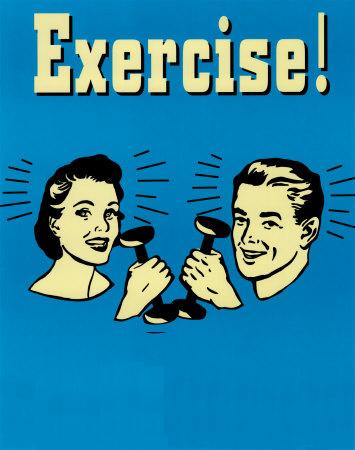Is Exercise Beneficial to Mental Health?

Photo promoting exercise.
December 7, 2017
“Exercise is the single most powerful tool you have to optimize your brain function”, said John Ratey the associate clinical professor of psychiatry at Harvard Medical School. Exercise helps your blood flow and get pumped to the brain, and it increases the size of the hippocampus. The hippocampus is responsible for your memory and also helps increase the connection between nerve cells in your brain. The Australian Government Guidelines recommend adults get up to at least thirty minutes of moderate to intensive physical exercise on most or all days of the week because it will help decrease stress, depression, anxiety and improve your sleep patterns.
Michael Otto, Ph.D., and professor of psychology at Boston University says that “The link
between exercise and mood is pretty strong… Usually, within in five minutes of moderate exercise, you get an instant mood-enhancement effect”. Blumenthal analyzed the mood to exercise connection by conducting a series of randomized and controlled trials. In one of four such studies, with adults who are “sedentary” or “deskbound” adults with a major depressive disorder, he and his colleagues gave said adults; supervised exercise, home-based exercise, antidepressant therapy or a placebo pill. Within in four months, Blumenthal found that the patient in the exercise and antidepressant groups had higher rates of remission/recovery than those patients on the placebo pill. Otto concluded that exercise is generally comparable to antidepressants for those with the major depressive disorder. A year later when they did a follow up with the patients from the study and he found that the subjects who still reported regularly had lower depression scores than did their less active counterparts.
“Exercise not only changes your body. it changes your mind. your attitude and your mood” said an unknown source. Exercise has been proven to benefit people’s mental health, physical activity releases chemicals in your brain called endorphins. These endorphins interact with receptors in your brain and help reduce the perception of pain you have, they also trigger a positive feeling in the body, similar to a way morphine does. It will take a long period of time and a lot of exercises to alleviate the consequences of illnesses such as depression, mood disorders, anxiety, etcetera but the immediate effect is tangible.

